Honey Bees Pollinate Blueberries. The blueberries were pollinated successfully by the bees, with supplement feeding from The Beekeeper.
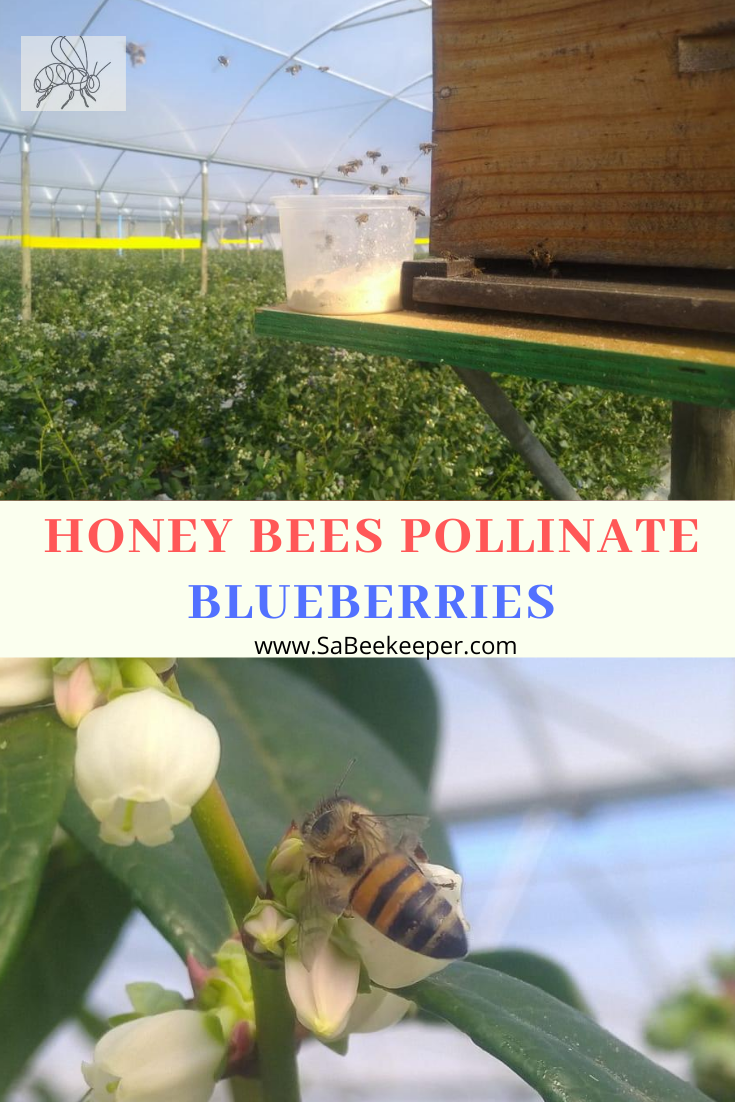
The blue berry plants in the beginning stages of pollination.
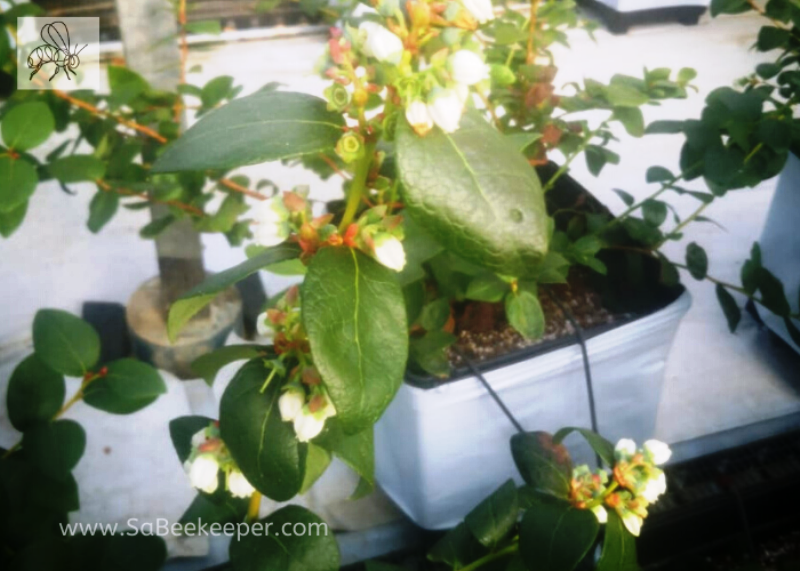
Honey Bees Pollinate Blueberries.
To understand the pollination progress, one must understand the plant or flowers you work with.
The Blueberries that are cultivated within these tunnels are the rabbiteye brush. Although the Blueberry brushes are self-pollinating. If the farmer wishes for the fruit to be larger and yield much greater amounts, cross-pollinated is needed. The rabbiteye brushes, or the other varieties are mostly self-infertile and cross-pollination is required. It is because of this, the flowers produce very little pollen and majority of nectar.
The recommended time to pollinate is 4 week period. The trick to keep healthy hives in the tunnels is to keep the queen laying new brood. Therefor supplement feeding of pollen substitute was and is necessary to maintain the hives in top health. A fresh supply of safe water drinking for the bees is needed.
In this way a brood would not be lost and a new beehive would not have to be brought in during pollination.
The Blueberry tunnels.
Each blueberry plant has its own pot. These tunnels are Spacious and well maintained.
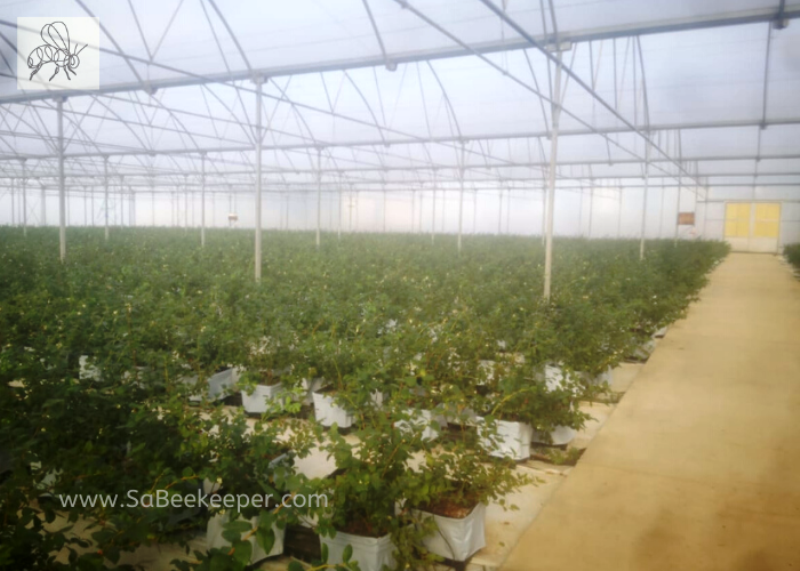
Setting up beehives.
Bee hives were kept 1.8 m from the floor on secure brackets.
8 to 10 hives were used per hectare of blueberry plant area.
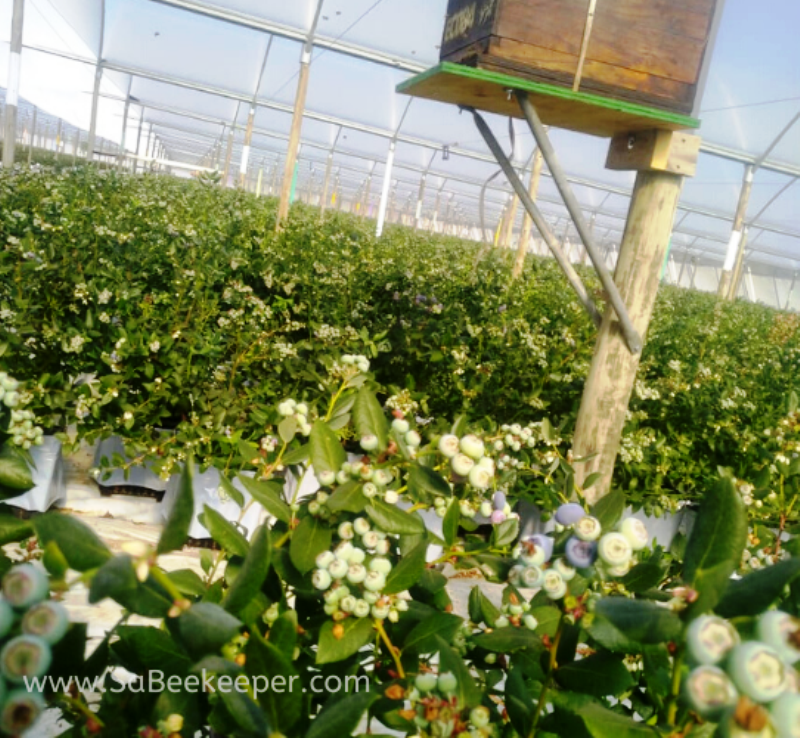
Supplementing Hives.
As mentioned above, the blueberry flower mainly produces the nectar. Therefor it was necessary to give supplement feed to the hive with pollen mix. To keep the queen laying eggs and to have a strong hive and brood. As well as thinking of the future for your hive.
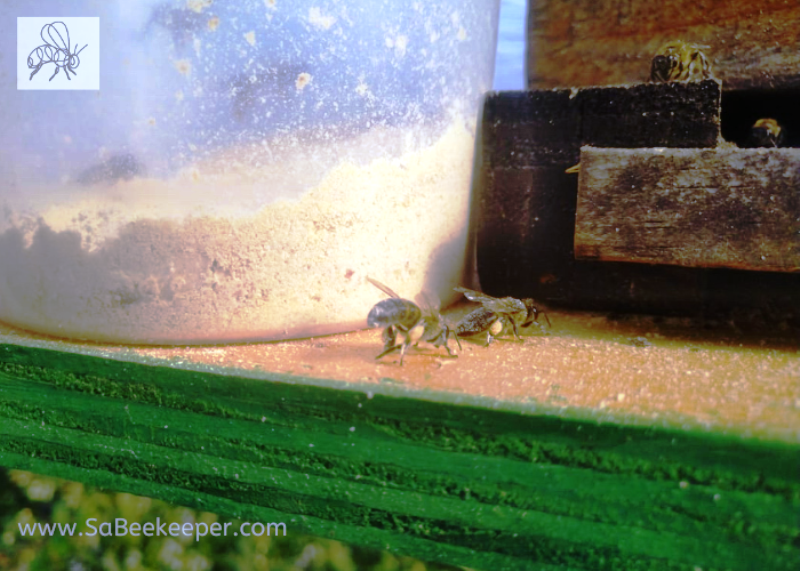
Bee booster pollen substitute can be fed directly into each hive on top of the brood frames to allow for faster and more controlled feeding. Or in a container placed next to the box.
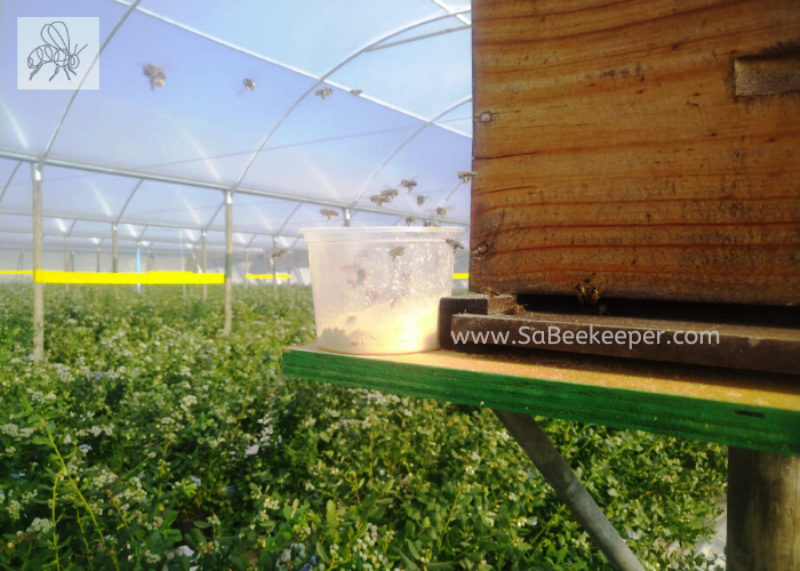
Water.
Extra clean water was also placed near the beehive.Water availability is very important for bees as the nectar is sticky and bees seem to use a lot of water. As well to keep the hive focused on the nectar production instead of survival
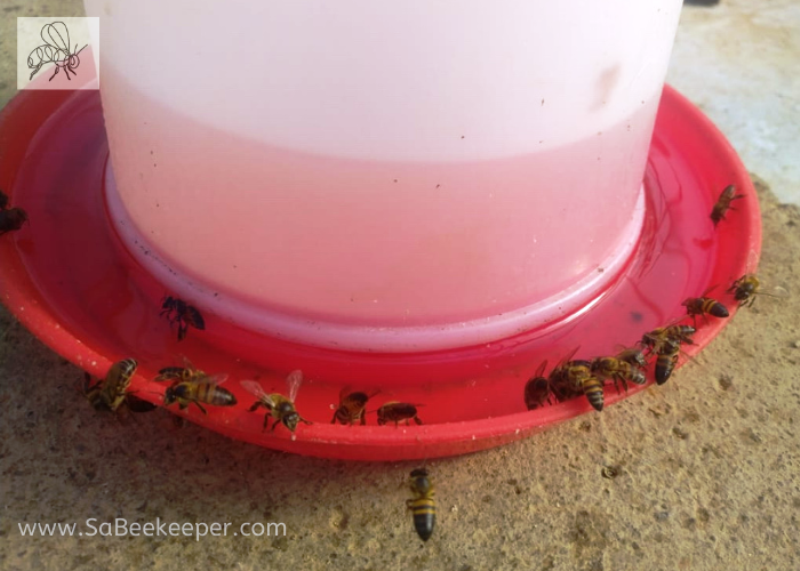
As the picture in the tunnel below shows a water gutter lined with shade cloth and stones to prevent the bees from drowning
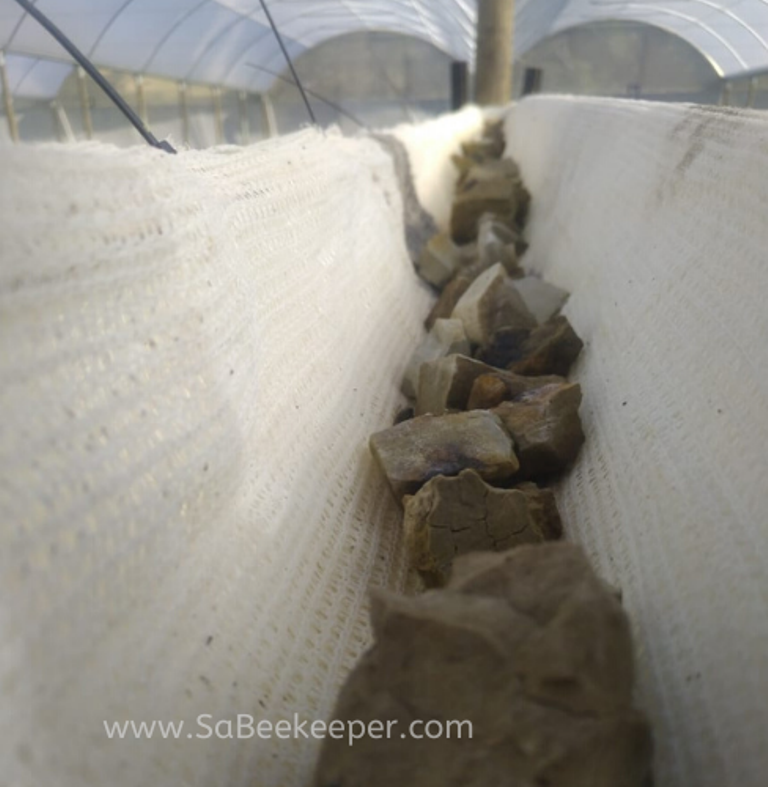
Pollinating honey bees.
The South African honey bees on the blueberry flowers.
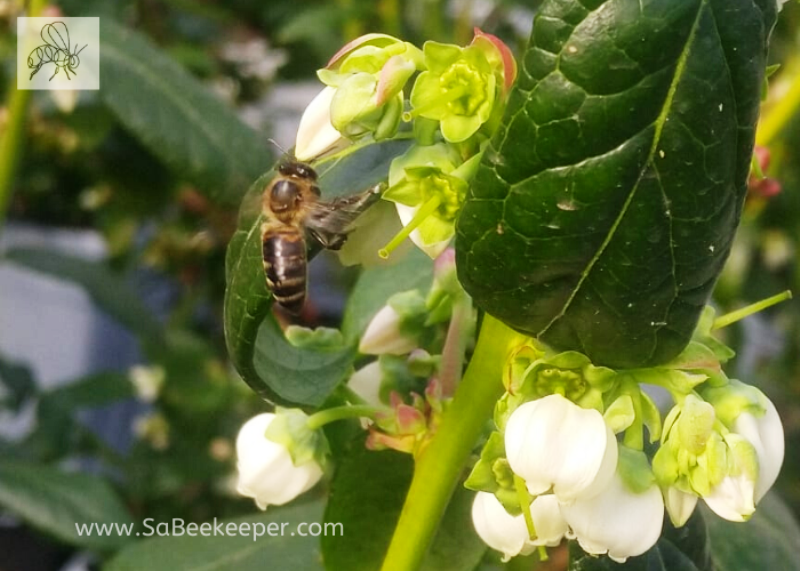
Blueberry flower and a pollinating south african honey bee.
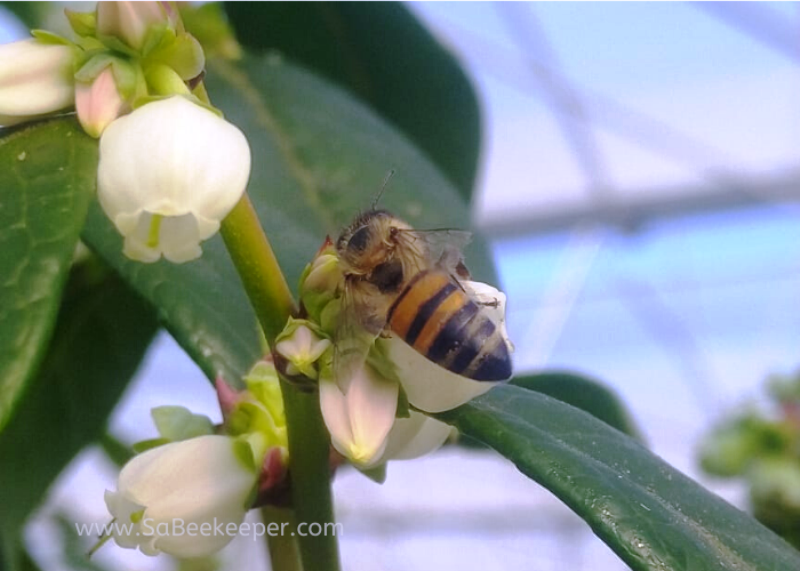
Below you see busy and happy working bees, going to and from the brood box
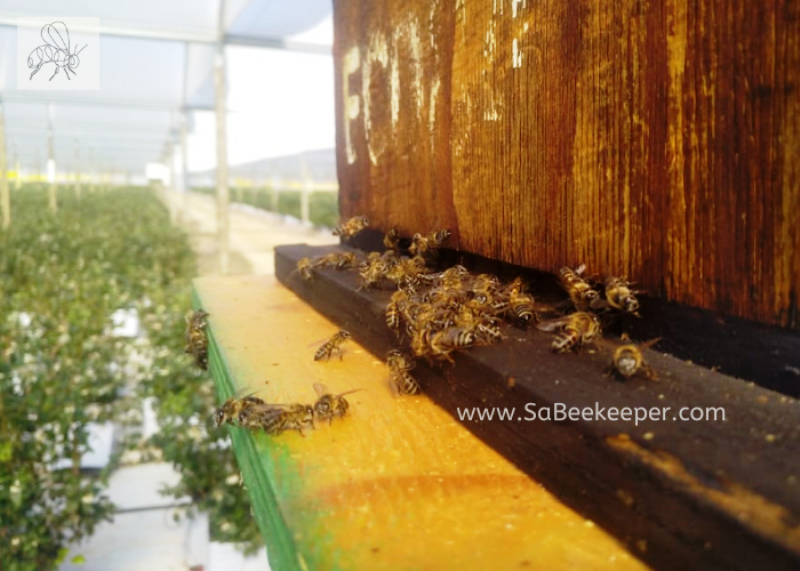
The blueberries and flowers.
Some blueberries ripe and green and developing from the flowers.
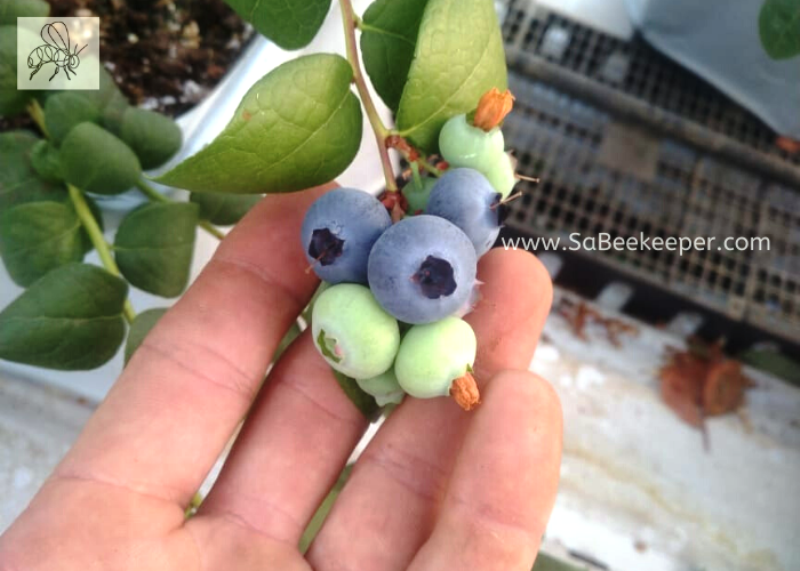
Ripe Blueberries on their plants in the tunnel.
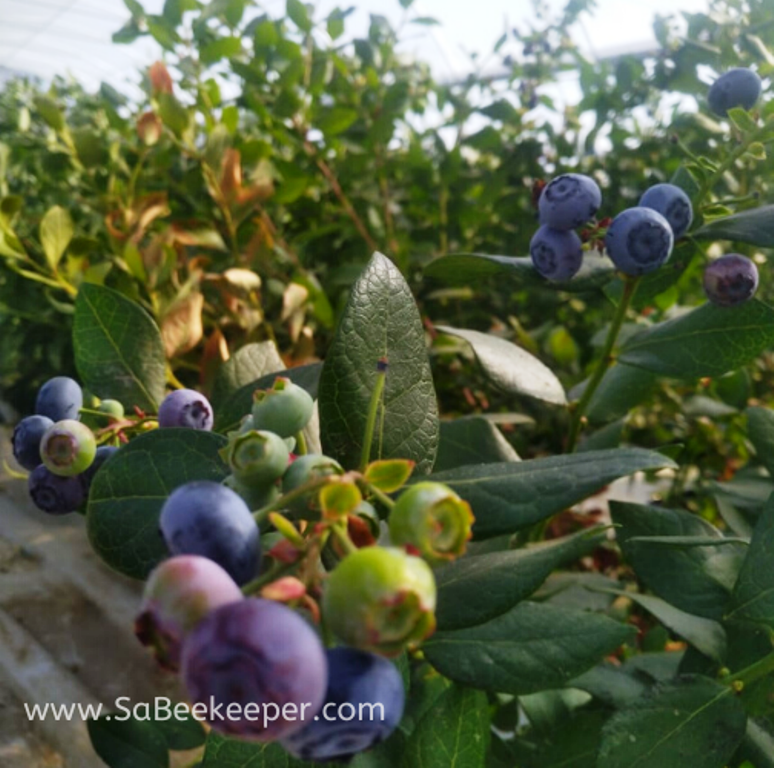
A beautiful white blueberry flower below.
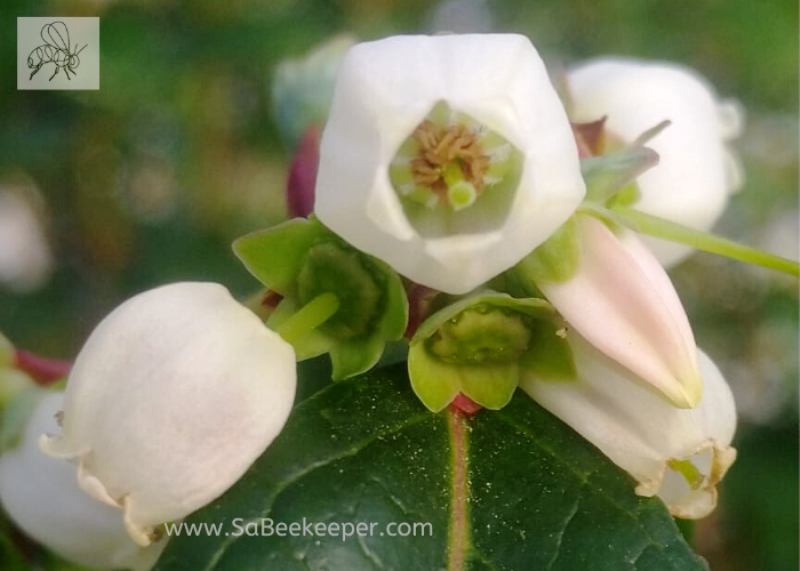
Crop spraying.
Safe precautions were taken when the blueberries were sprayed. Crop spray when applied kills bees when wet. Though when dried has minimal affect.
The hives were closed up at night. Then the farmer sprayed the crops, come morning spray was dry already.
The spraying was successful for The Beekeeper and farmer and no need to swap out any beehives was required. Communication was the key.
Bee hives health.
Towards the end pollen patties where used (pollen substitute and nectar substitute)
Hives had done 8-10 weeks in tunnels with no need to replace any hives. The hives didn’t loose any condition and had the normal standard brood and honey in the combs. They were kept healthy through smart planning.
Other tips.
The placing of hives early in the season led to a loss of older foraging bees.
The older bees seemed to fly into the sun light against the plastic at the start and die.
Due to the older brood being use to roaming, the key is to let the new brood adapt. As well as spray to shade plastic dulled the sun’s intensity, helped reduce this.
Positive outcome.
Younger bees that started their foraging in tunnels seemed to adapt to the tunnels better and last 5-10 weeks. Minimal loss in bees occurred with these young bees.
The hives were left healthy and in good order after supplement feeding and providing water. As well as co operation from the farmer to work out the problems incurred to keep everyone and the bees safe and happy.
A well pollinated product and a good fruit, as well as keeping the bees safe was the goal.
The Beekeeper, is south african bee keeper and producers honey as well.
Leave a Reply